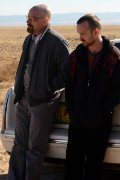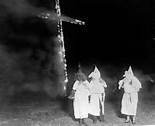Marcy Sheiner's Blog, page 9
December 13, 2013
Jews and Chinese Bond on Xmas

Ifu mie, Chinese food (Photo credit: Wikipedia)
The Jewish tradition of going out to a movie and for Chinese food on Xmas Day is getting all kinds of attention around the Internet. In case you haven’t seen it, the poster below and a blog about it can be found on Snopes. For your listening pleasure, go to YouTube and listen to “Chinese Food on Christmas,” a song celebrating this ritual.

Read more at http://www.snopes.com/holidays/christmas/photos/chinese.asp#qdfyABYzUJfGBMmJ.99
Filed under: humor, Jewish, restaurants Tagged: American Jews, Chinese cuisine, Chinese food, Christmas, Judaism

December 8, 2013
Endings: Breaking Bad: Spoilers
MAJOR SPOILERS AHEAD! STOP NOW IF YOU DON’T WANT TO KNOW WHAT HAPPENS AT THE END OF BREAKING BAD!
We could probably count on the fingers of one hand how many long-running TV shows ended in a way that we found satisfying. Seinfeld comes to mind. M.A.S.H. Nothing else at the moment, though I’m sure there must be more, if few and far between. I mean, remember The Sopranos? Thus, when a show does deliver the goods in that last crucial episode, after flawlessly leading up to it with four or five intense programs, it seems like quite an achievement.
The ending of Breaking Bad left me completely, and fully satisfied. I’m not wondering what happened to this character or where did that one go, or why did that idiot do what he did. My one and only complaint is that Hank died, but since Jesse was allowed to live I guess I can forgive Vince Gilligan and Company. Besides, the sacrifice of Hank‘s character was integral to what followed.
Hank and Jesse were the only characters I really liked on BB….and maybe the eccentric lawyer Sol, who made a clean getaway, even if he is stuck in Omaha flipping burgers. Everyone else was either psycho—I loved it when Jesse called Todd and Jack’s gang a bunch of psycho fucks—or whining nags like Skyler and
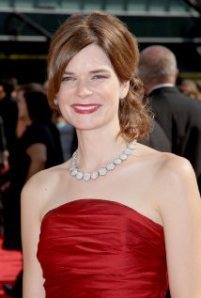
Betsy Brandt as Marie Shrader (Photo: Imdb)
son Flynn; good god, how those two worked my last nerve! Marie was no prize either, though in the final episode finally did some real acting.
Aside from the main climactic events, there were a few elegant touches executed only the way BB can do these things: for instance, the gun-on-a-turntable Walter rigs up to give those psycho fucks what they so richly deserved. The creation of that gadget brought us full circle in terms of Walter’s character, as he harkens back to the genius chemistry teacher we were introduced to in 2008. While he was setting up this contraption, I hadn’t a clue WTF he was going to do with it, and completely forgot it even existed…until the moment when Walt pushed the button that swung open the trunk of his car. Out came Robo-Gun, spinning like the turntable of a record player, firing off bullets instead of doo-wop. Within a few minutes, maybe even less, every psycho fuck but Todd and Jack lay dead and bleeding on the floor. Jesse got the gratification of choking Todd, the sociopath who physically tortured him, while Walt cut short Jack’s last drag on a cigarette the old-fashioned way, with a manual blast to the head.
By the time the cops arrived Walter was dead. Jesse refused to kill him for about the hundredth time in their complex father-son relationship, but it turned out he was shot by his own invention. No doubt he knew it might happen—but Walt’s been living on borrowed time already, and probably preferred to die now rather than endure a trial and prison, only to die of cancer during or shortly thereafter.

Anna Gunn as Skyler White (Photo: Imdb)
At least Walt made his confession before dying. Earlier he goes to see Skyler and begins by saying “Everything I did…” but she cuts him off, a great relief to her and to me, who could not bear one more bullshit declaration that he cooked meth and killed people “for my family,” the word so weighted in this context I could vomit. But Walt surprises her, and us: he tells the truth this time. “I liked it,” he said. “I was good at it. I felt alive.” It’s not like we didn’t know it, but still, I wanted to applaud: the guy came to terms before meeting his maker, if that is indeed what’s in store for him (and the rest of us).
Satisfying ending or not, saying farewell, even to characters I loathed, is just too sad. The older I get the more I lose, and the more I see that’s one of life’s big lessons. It’s why the Buddhists practice non-attachment: “When you ain’t got nothing you got nothin’ to lose.” But if I cry every time a show I love ends, imagine what it’s like when I lose real people or things. I don’t have to imagine…it’s happened enough already. Focussing some of life’s sadness on a show I loved is convenient. Satisfying.
Goodbye Heisenberg, you psycho fuck!
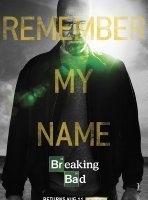
Bryan Cranston as Walter White (Photo: Imdb)
Related articles
Bad Chemistry: The Character Elements of Breaking Bad (shutterstock.com)
Breaking Bad, The Final Episode – My thoughts… (andersonshatch.com)
“Breaking Bad” and Conflicted Masculinity (prodigal.typepad.com)
The 16 Worst Things Walter White Has Done On “Breaking Bad” (buzzfeed.com)
Watch Walt and Jesse read the final ‘Breaking Bad’ script for the first time (theverge.com)
Filed under: Musings, Review, spoiler, TV Tagged: Breaking Bad, Jesse Pinkman, Reviews, Skyler White, Television, Vince Gilligan, Walter White

December 6, 2013
Women’s Theater: Songlines

English: Sunset, from the Cumberland Arms, Byker (Photo credit: Wikipedia)
My very talented friend Phyllis Christopher, whose pictures you might have seen on my blog from time to time, is working on a project in the U.K. that’s so exciting I’m sharing it here. Songlines is an installation piece created from interviews and conversations with women, primarily about the vast and inspiring ocean.Open Clasp Theatre is a women’s company funded by…are you ready? The British Arts Council, among other governmental agencies. So, if you’re anywhere in England on the dates listed below, check it out, and if not, click on over to their website for inspiration.
Songlines takes place from Tuesday 3rd – Saturday 7th December at Byker Lives, 15 – 17 Raby Cross, Byker, Newcastle, NE6 2FF from 11am – 4pm (late opening on Thursday until 7pm). It also takes place between Tuesday 10th – Saturday 14th December at Crossroads Community Café, 54 Borough Rd, Middlesbrough, TS1 2JH from 11am – 3pm (late opening on Thursday until 7pm).
The piece was developed in collaboration with 26 women from minority communities from Byker Sands Centre – Sure Start East, Open Door North East and West End Women & Girls Centre, working alongside photographerPhyllis Christopher, visual artist Taryn Edmonds and filmmaker Kate Sweeney.
This installation is the final phase of A Song To Sing project which informed the play The Space Between Us, portraying the experiences of women who are Czech/Roma, Slovak/Roma, Travellers, women seeking asylum who are refused and destitute, and Arabic women from Libya, Syria and Kuwait.
Oh, to be in England!
Related articles
Women’s stories are a window on the world (thejournal.co.uk)
Refugees from all over the world create an installation artwork in Newcastle (theguardian.com)
Filed under: Feminism Tagged: Arts, British Arts Council, Byker, Byker Sands Centre - Sure Start East, England, Feminism, Kuwait, Libya, Newcastle, Phyllis Christopher, Songlines, Syria

December 3, 2013
The Before Trilogy: Review
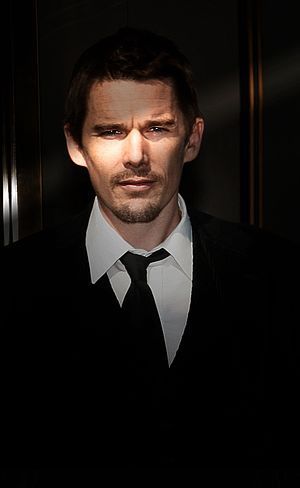
English: Ethan Hawke at the 2007 Toronto International Film Festival (Photo credit: Wikipedia)
[image error]
Cover of Before Sunrise
Before Sunrise
Before Sunset
Before Midnight
starring Ethan Hawke and Julie Delpy
As series go, the “Before‘s” aren’t half bad. I’ll even go so far as to say that, as entertainment, they’re two-thirds great: Before Sunrise and Before Sunset are quite compelling. Each could stand alone, but why make them do that when viewing without pause a six-hour saga spanning half a lifetime is so much fun? That’s the joy of rentals, I’ve discovered: watching an entire season of Homeland or Breaking Bad over the course of a few days is so much more satisfying than weekly viewings dragged out over several years.
The plot of the Before trilogy sounds on the surface deceptively simple: boy meets girl; boy loses girl; boy gets girl. In Before Sunrise, Jesse, an American played by Ethan Hawke, meets the French Celine (Julie Delpy) on a train speeding through Europe the night before he’s heading home. His plane leaves from Vienna in the morning, and when the train reaches his station he spontaneously asks Celine to get off and spend the night with him. This is not an indecent proposal, since he has no money for a hotel and plans to roam the city streets all night. After a beat or two she says yes—oh, to be young, for only the young take such risks! And hey, if she hadn’t gone, look what they, and we the audience, would have missed.
Parting is such sweet sorrow: after a night communing with Vienna and each other, they agree to meet in the same place in six months’ time to see if they still feel connected. As the sun rises, the first movie ends, leaving the audience suspended.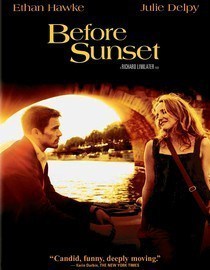
The second film, Before Sunset opens with Jesse hawking the novel he wrote based on what happened before sunrise. He’s in Paris giving a reading—as if! First-time novelists are rarely if ever whisked by their publishers on worldwide publicity tours accompanied by their own personal limo driver. Maybe this occasionally happened in, say, 1948, but certainly not in the 90s when the movie takes place. That’s just one of the ways in which the Before‘s get the writing life wrong: in other scenes Jesse tells anyone he happens to meet the entire plot of his next as yet unwritten novel, a sure sign of the rank amateur.
Caveat, Jesse: Talking about an unwritten book guarantees you won’t write it. That’s not some superstition, either: when you talk out the story you dissipate the creative energy needed to write it. If you tell it first, by the time you get to a blank page, the story’s gone stale, and you have nothing left to say.
The first two Before‘s cover the most exciting phases in a relationship: meeting, anticipating, getting-to-know-you, and testing reality. No matter how many times it’s been told, these remain engaging; thus, the first two Before‘s cannot fail. Well, maybe they can, but they don’t.
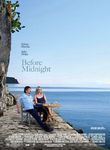 The trouble with Part The Third is a lack of conflict, at least for the first half. As any writing teacher will tell you, without obstacles there’s no story, especially no love story. Before Midnight opens on an almost ideal relationship. Only later, when the couple go off alone, away from their kids and their friends, does the plot thicken with a blowout. Here comes conflict in spades; the problem is that Jesse and Celine—mostly Celine, true to life—raise just about every issue you’d expect to be a source of strife in a contemporary relationship. I could have recited verbatim this part of the script, in which today’s couple conflicts are explored ad nauseum—which is predictably tedious. I may be wrong: perhaps if I were 35, married, and afraid my husband planned to haul my ass out of Paris to live in Chicago…well, then, sure, I’d relate to Before Midnight the way I related to Diary of a Mad Housewife in 1970. At that movie I sobbed my heart out : the protagonist’s story mirrored my own. Thus, I can see how a good portion of today’s audiences related to and loved Before Midnight.
The trouble with Part The Third is a lack of conflict, at least for the first half. As any writing teacher will tell you, without obstacles there’s no story, especially no love story. Before Midnight opens on an almost ideal relationship. Only later, when the couple go off alone, away from their kids and their friends, does the plot thicken with a blowout. Here comes conflict in spades; the problem is that Jesse and Celine—mostly Celine, true to life—raise just about every issue you’d expect to be a source of strife in a contemporary relationship. I could have recited verbatim this part of the script, in which today’s couple conflicts are explored ad nauseum—which is predictably tedious. I may be wrong: perhaps if I were 35, married, and afraid my husband planned to haul my ass out of Paris to live in Chicago…well, then, sure, I’d relate to Before Midnight the way I related to Diary of a Mad Housewife in 1970. At that movie I sobbed my heart out : the protagonist’s story mirrored my own. Thus, I can see how a good portion of today’s audiences related to and loved Before Midnight.
I could write an entire blog, if not a whole book, on another aspect of the third movie: Celine as a mother. For most of the film the
couple’s two daughters are invisible, either off playing somewhere, or asleep, or left with friends while the duo runs off for a romantic interlude. I couldn’t help but notice this, since every time I’ve created a fictional character who’s a mother, editors and agents have demanded I devote more time to the kids even when they have nothing to do with the story. I’ve been told that if I don’t, readers will dislike the main character: she’s seen as a Bad Mother. (As I said, it’s a whole separate blog I hope to get to someday.)
Of course, I didn’t lose sympathy for Celine—but then, I wouldn’t. I wonder about other viewers; after all, it’s clear that Celine’s career is a more important part of her life than motherhood. In Before Midnight, though, this somehow seems natural. A sign of changing times? French sensibility? Or is Celine just an unusual woman?
 Julie Delpy’s performance improves by leaps and bounds during the course of the trilogy. In the first two movies she’s an okay actress—but it’s in the latest installment that she really blossoms. Maybe it’s just because here she gets to play anger; whatever the reason, her acting chops have clearly evolved. It brings to mind the cliché that women reach their prime in their mid-thirties—only it isn’t such a cliché: in Before Midnight Julie the actress and Celine the character seem to have reached the peak of their powers. Celine’s career is about to take a great leap forward, and by movie’s end I fervently hoped Jesse wouldn’t drag her off to Chicago to waste the best years of her life.
Julie Delpy’s performance improves by leaps and bounds during the course of the trilogy. In the first two movies she’s an okay actress—but it’s in the latest installment that she really blossoms. Maybe it’s just because here she gets to play anger; whatever the reason, her acting chops have clearly evolved. It brings to mind the cliché that women reach their prime in their mid-thirties—only it isn’t such a cliché: in Before Midnight Julie the actress and Celine the character seem to have reached the peak of their powers. Celine’s career is about to take a great leap forward, and by movie’s end I fervently hoped Jesse wouldn’t drag her off to Chicago to waste the best years of her life.
We may never know—unless, that is, a fourth sequel is on the way.
Related articles
Film Review | Before Midnight (thejournalist.ie)
The Heartbreaking Genius Of “Before Midnight” (buzzfeed.com)
Interview: Julie Delpy on the ideal way to watch the “Before” trilogy (thefilmexperience.net)
What comes Before? – in praise of Linklater, Delpy and Hawke (jamesgillingham.wordpress.com)
Filed under: Writing Tagged: Arts, Before Midnight, Before Sunrise, Before Sunset, Celine, Ethan Hawke, film, Julie Delpy, motherhood, movies, Reviews, Writing

December 2, 2013
Journalism: A Noble Profession
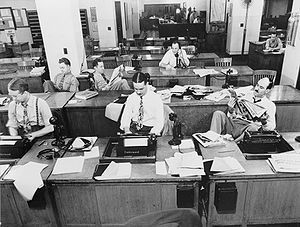
Newsroom of the New York Times newspaper. (Photo credit: Wikipedia)
It is unfortunately true that when most people hear the word journalism they automatically envision reporters descending on tragic scenes shouting ghoulish questions. “How’d you feel when you saw your son’s dead body?” Or they blame the ruthless papparazzi for Princess Diana’s death, losing sight of journalism’s many heroic professionals: Woodward and Bernstein, Walter Cronkite, and, more recently, Amy Goodman (Democracy Now), Jeremy Scahill (Blackwater: The Rise of the World’s Most  Powerful Mercenary Army), and Julian Assange (WikiLeaks).
Powerful Mercenary Army), and Julian Assange (WikiLeaks).
Then there’s Edward Snowden who, though not exactly a journalist, blew the whistle on NSA’s busy activities. Incidentally, Snowden is the seventh person accused by the Obama administration of violating the Espionage Act of 1917 by leaking secrets to the news media. Historically, only three people have been accused by all previous presidents of violating this law. Whatever happened to our super liberal, transparent President-elect? But that’s a blog for another day.
Without the courage of investigative reporters, Richard Nixon might have served out his full term, and our nation most likely would have witnessed an entirely different history. Daniel Ellsberg released the Pentagon Papers in 1971 to The New York Times. They revealed that the government knew early on that the Viet Nam war could probably not be won, that continuing it would lead to more casualties than publicly admitted, and that the Johnson Administration had systematically lied to the public and to Congress.
My point is that journalists go after the truth and shout it out to We the People. We need them: we cannot rely on governments to tell us the truth. Sure, some media deliver a hefty dose of propaganda with their reportage, or even tell outright lies; still, not all are dishonest. Without reporters we would know a lot less than we do, and those in power would get away with even more than they already do.
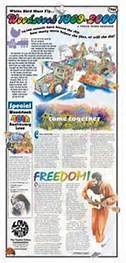 I don’t presume to put myself in the same category as Woodward and Bernstein, but I’ve done my share of newspaper work and learned a thing or two in the process. For several years I was Assistant Editor at the Woodstock Times, a weekly paper in upstate New York. While it was a great opportunity for me to learn the news biz, especially how to cover topics I cared about, I also covered local news, some of which nobody else would do—like the town’s new sewer system, or the ambulance bought with donations.
I don’t presume to put myself in the same category as Woodward and Bernstein, but I’ve done my share of newspaper work and learned a thing or two in the process. For several years I was Assistant Editor at the Woodstock Times, a weekly paper in upstate New York. While it was a great opportunity for me to learn the news biz, especially how to cover topics I cared about, I also covered local news, some of which nobody else would do—like the town’s new sewer system, or the ambulance bought with donations.
During one of those assignments that seemed, to all outward appearances, a boring write-by-rote, I was happily surprised by a hit of that rarefied air breathed by reporting’s upper echelon. Unlikely as it seems, it was at a meeting of county agencies starting up a day care program that I grokked the full nobility of my profession.
As at most of these kinds of gatherings, the movers and shakers sat on fabric-covered chairs behind a long desk facing an audience of citizens and reporters, the latter relegated to ice-cold metal chairs placed around the fringes of the room. I sat with my legs crossed, notepad on my knee, head down, scribbling half shorthand, half my own unique symbols, hair falling in my face. Suddenly an extraordinary physical sensation came over me: my body felt like a conduit into which words were poured, processed and translated into ideas of supreme importance. My hand followed a kinesthetic route taking notes that would eventually be typeset onto newspaper and distributed to thousands of readers. I was nothing more and nothing less than a channel through which information was transmitted. Hardly a top-rate job description and verging on corniness I know—yet it gave me a sense of wild exaltatation. With hindsight I’ve come to regard that moment as one of being well-used: I was performing a necessary task, contributing to the community in which I lived. Go ahead, laugh—but I felt close to heroic.
Now that my moment of heroism is on record, I’ll confess that I seldom was. One day I answered the office phone to an anonymous caller reporting on a cross-burning in front of a house purchased by a mixed-race couple about 15 miles away in Phoenecia. I immediately started calling around for more information. In my young naivete—I was barely 30—I questioned cops, realtors, and shopkeepers as casually as I might ask what they they thought of the new ambulance.
Late that night I got a call at home. A woman’s voice commanded, “I want it stopped!” No hello, no self-identification.
“Never mind that. I’m doing you a favor. If you persist with what you’re doing, you will be watched. Consider this a friendly warning. The next one won’t be so friendly.”
“What is this?” I actually laughed. “The Lou Grant Show?”
“This is real life, honey, not television. It’s not one of your hippie games either.” Before hanging up on me she repeated, “Believe me, I’m doing you a favor.”
I hung up and sat by the phone, dazed. I supposed these things happened, but nothing like it had ever happened to me, so it did seem like a television show.
For the next few days I went about my life, the call never far from my thoughts. I didn’t investigate the story any further. It is one of the things I regret having done, or not done, in my life. It’s true I was in no way prepared to cover such a dangerous story—I was learning the news business “on the job”—but I wish I’d asked the publisher or another reporter to help me; we might’ve done it together. To my credit, I did tell both the publisher and a reporter about it, but the former only cracked a few jokes and promptly forgot it, and the reporter, full of righteous indignation, swore she’d ship off her daughter to stay with grandparents while she charged into the fray. She too promptly forgot the forgot about it.
I did not. To this day I frequently think about that cross and my inaction. The incident looms large in the narrative of my life. Not only do I regret dropping the ball for the moral lapse it represents, but I sometimes wonder, had I followed the story and exposed the Klan, would my career have benefitted? Who knows: I might’ve won a Pulitzer! Or been hailed far and wide for my bravery! Offered a job with the New York Times! It’s not that far-fetched; such things happen every day, so why not to me? Because I wimped out, that’s why. Out of fear I did nothing, and I never heard another word about the local Klan, the cross-burning, or the couple who’d been their target. A few years later I did testify at county hearings looking into the Klan’s activities, but nothing came of that either.
I do not lightly set this down here for the world to read. Why, I asked myself, should I publicly announce that when the shit hit the fan I turned tail and ran? I failed to live up to my principles. I decided, however, not to chicken out this time, though I can’t imagine anything will be gained here. Maybe I just wanted to say that I still believe in the nobility of journalism. Despite some of the terrible things done in its name, newspaper and online reporting is one of the few real sources of People Power, a rare avenue of Truth. Don’t give up on journalists.
Related Articles:
The Regime’s Efforts To Silence Whistleblowers And Intimidate Reporters Have Been Historic by DEBRA HEINE
‘We can’t rest’: Reporters in the U.S. need protection from the aggressive surveillance state (rawstory.com)
All the Presidents Men (1976) (kyleknappett.wordpress.com)
Woodward/Bernstein: Could the Web generation uncover a Watergate-type scandal? (nextlevelofnews.com)
Filed under: Current Events, Personal, Politics, Rants, Writing Tagged: Bernstein, Daniel Ellsberg, Espionage Act of 1917, Jeremy Scahill, Julian Assange, New York Times, Richard Nixon, Walter Cronkite, Watergate scandal, WikiLeaks

November 30, 2013
Living In Post Time
The famous “black and white” LAPD police cruiser (Photo credit: Wikipedia)
We are living in a Post time: Post-Nine-Eleven, Post-Stress, Post-Trauma, Post-Modern. Think about it: the number of people, and not only war vets, living with Post-Traumatic Stress Syndrome and Post-Traumatic Brain Injury has multiplied geometrically since the turn of the century. My son Daryl, for instance, is, at nearly 50, Post-TBI—Traumatic Brain Injured—though I suppose we could skip the Post. He is brain injured, period. Bad enough he was born neurologically compromised; in 2004 a driver in a hurry ran a red light and threw him 30 feet or so onto hard pavement. His brain has never fully recovered; if anything, it’s gotten worse and may still be worsening.
Post-Thanksgiving, the Friday after the feast, we were returning from a visit to my daughter and family, a short delicious visit that had nearly been canceled when my grandson had a Crohn’s flare-up, but was merely truncated instead. Laden with leftovers, we entered airport security, and therein lies my sad traumatic tale.
The uniforms at LAX were a bit testy, and who could blame them, having lost a TSA to gunfire a mere three weeks ago. I was cleared for quick screening—didn’t even have to take off my shoes—so while I zipped right through, Daryl had to pass the Four Stations of Security: (1) putting shoes, jacket and bags on the conveyor belt; (2) walking through some kind of alerting device; (3) standing, hands raised, before a full-body X-ray; and (4) letting the TSA go through his food bag. Pre-screened or not, they’d looked through my food bag too, and decided the stuffing was really stuffing and the pie was made of pumpkin. I am not brain damaged, so I didn’t mind; but Daryl verbally pounced. Eager to dump half a century of personal struggle on someone, anyone, and heedless of our Post-Everything world, he yelled, “I’m an American citizen! While you look through my food some foreigner is blowing up the plane!”
Any non-comatose person reading this knows what followed, more or less : handcuffs, uniforms, TSAs replaced by LAPD, my tears, Daryl’s lunatic ravings, and a hotel room instead of a seat on the plane
I sit here now, having been momentarily inspired to create art of the experience, but in fact it is not art. It isn’t even much of a story. It is just another event in the life of the mother of / and a person with / disabilities.
Related articles
Vitamin E, vitamin C help traumatic brain injury (foodconsumer.org)
Traumatic Brain Injury & Speech (kbrewerblog.wordpress.com)
What is a Traumatic Brain Injury (TBI)? (clearwaterpersonalinjury.wordpress.com)
Filed under: Current Events, Disability, Personal, Rants Tagged: Conditions and Diseases, Neurological Disorders, Post-Stress, Post-Trauma, Trauma and Injuries, Traumatic Brain Injured, Traumatic brain injury, TSA

November 26, 2013
Testimonials
June 19, 2012:
Client : Dean Homicki/ Via ELance
Rating: 4.6 out of 5 |Web Content
Feedback Comments:
Professional, talented and an extremely competent writer.”
“Marcy is a fantastic editor and writer! As an editor, she's thorough, conscientious, creative, intelligent, and tough in just the right way. She lets you know when something doesn't communicate, and she's often able to give a writer inspiring insight about making words work.
November 20, 2013
Doris and Me
 This morning I started re-reading Doris Lessing‘s The Sweetest Dream. It’s one of her realistic novels (as opposed to her “space fiction”), published in 2002. The story revolves around a British household of extended family and friends during the Sixties. I wanted to read Lessing, and chose something I’ve only read once, having OD’d on my favorites as many as five times.
This morning I started re-reading Doris Lessing‘s The Sweetest Dream. It’s one of her realistic novels (as opposed to her “space fiction”), published in 2002. The story revolves around a British household of extended family and friends during the Sixties. I wanted to read Lessing, and chose something I’ve only read once, having OD’d on my favorites as many as five times.
I would’ve written this yesterday, but I was torn between doing so or continuing with a YA novella I’ve been revising. I knew what Doris would say: she’d say it’s a stupid waste of time for writers to go on and on about other writers, that I’d be better off creating my own work, or reading someone new. I faced the same conundrum today, but decided to defy my guru.
Doris Lessing was—still is—my guru. I say this in all sincerity, not as a joke or clever wisecrack. What else do you call a person whose words you hung onto for 30+ years, memorized, absorbed? Someone whose eyes you looked through when you looked at the world? Whose perspective informed your own observations and conclusions about politics, society, human behavior? Her writing wasn’t gorgeous; she didn’t go in for fancy flourishes like Virginia Woolf or Edith Wharton. Her language was plain, almost bare at times: she simply said what she had to say. What was so outstanding about Lessing’s writing was The Truth writ large. When I opened a Doris Lessing book I felt myself to be in the presence of Truth. I suppose it’s that her version of the truth is one with which I agree, though I didn’t know it until each gem made its way from her brain to mine. As she said, you can’t tell anyone anything they don’t already know. I felt less lonely when I read a Doris Lessing book. When I was at my 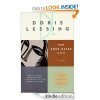 most down and out, re-reading
most down and out, re-reading  Shikasta or The Four-Gated City was a better cure than therapy or massage or any of the commonly prescribed stress-relievers.
Shikasta or The Four-Gated City was a better cure than therapy or massage or any of the commonly prescribed stress-relievers.
Doris Lessing’s most famous, endlessly lauded book, The Golden Notebook, was far from my favorite. Critics and scholars dubbed it The Great Feminist Novel, much to Lessing’s distress. I certainly liked it, and discovered plenty of truth in it—but I’ve always thought that calling TGN her best book is like saying Stevie Wonder’s best song is I Just Called to Say I Love You. Only a simpleton would judge Stevie Wonder’s huge output of complex, meaningful music by that bit of three-minute treacle. Not that TGN is treacle—Lessing could never write that badly—but many of her books are more deserving of an audience that might not have been inclined to read them after TGN. The fact that she was annoyed almost to the point of fury when it became the standard-bearer for feminism ought to be a clue to critics that they’re on the wrong track here.
When my friend Corky turned 60 she asked friends to come to her party dressed as a woman we admired. I put on a dowdy black-and-white polyester dress from the Salvation Army, a pair of low black heels resembling Doris’s signature shoes, pulled my hair into a bun, and wore no makeup. I read aloud from Shikasta in a British accent. I was surprised at how easily I slid into her persona. The dress-up transformed me, and I’ll never forget the way I felt that night.
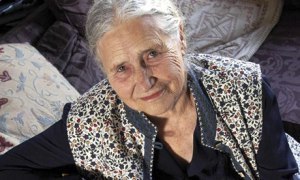 One of my lifelong goals was to go to London and meet Doris (I did meet her stateside; more of that later). When Kate Millett wrote about having tea with Doris Lessing, I longed to do the same. In the mid-90′s I had the good fortune to meet Fay Weldon, who called after seeing my review of her in the Bay Guardian, and took me out to dinner. She knew Doris, lived not far from her; I thought I was one step closer to London tea, now revised to “Tea With Doris and Fay.” I never made it. It’s good to have fantasies, and I ‘m not regretful. What I do regret is the way I behaved when I met Doris in San Francisco.
One of my lifelong goals was to go to London and meet Doris (I did meet her stateside; more of that later). When Kate Millett wrote about having tea with Doris Lessing, I longed to do the same. In the mid-90′s I had the good fortune to meet Fay Weldon, who called after seeing my review of her in the Bay Guardian, and took me out to dinner. She knew Doris, lived not far from her; I thought I was one step closer to London tea, now revised to “Tea With Doris and Fay.” I never made it. It’s good to have fantasies, and I ‘m not regretful. What I do regret is the way I behaved when I met Doris in San Francisco.
I was visiting the city for the first time, scoping it out as a potential place to live. I fell in love, as so many do, on the second day, and my bags were mentally packed. I was hanging out in a Mission cafe reading one of the free alternative papers when that face popped out at me: that face with not a spot of makeup over wrinkles, her steely gray hair tied severely in a bun, the eyes, as always, gazing out over great landscapes of time and space. My heart skipped a beat, and I read the caption: Doris Lessing would be speaking at a luncheon in San Francisco ten days from now, the day after my flight back East. Without a thought I left the cafe and quickly walked back to the friend’s flat at which I was staying. I phoned my son to tell him my plans had changed, that I was staying an extra week. He wasn’t home, but Gina, a housemate, took the message. (When I did go home, Gina told me she’d gone to the library after my call, where she ran into her mother and another friend of mine, and she told them I was staying longer in SF to see Doris Lessing. Gina performed for me, imitating the women’s histrionics: “Doris Lessing? Oh my god, oh my god!! She must be so excited! Overwhelmed! My God, Doris Lessing!” Perhaps Gina exaggerated, but I don’t think so.)
Meanwhile, back in SF, I called the number in the paper to buy a ticket for the event. They were sold out. No matter. The ticket seller put my name on a list in case anyone canceled. Every day twice a day for the next ten days I called to see if anyone had canceled; every day twice a day he told me they had not. No matter; I was going. Since I had no Lessing books with me, I went in search of one for her to sign. I wanted a hard cover version of my favorite, The Four-Gated City. I must’ve called every bookstore in San Francisco—and back then there were quite a few bookstores in San Francisco—but found only a paperback version. I inquired about some of her other titles in hard copy: zero. I began to reconsider my plans to move West: “I’m not sure,” I told people, “I want to live in a city where I can’t find a hardback copy of The Four-Gated City.” New Yorkers got it. In the end, I bought a paperback, though I had one at home.
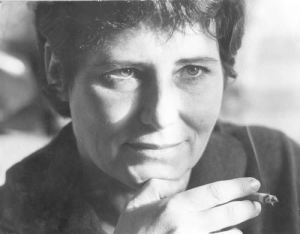
1965
I continued my endless calling for a ticket; considering my peskiness, the guy in the ticket booth was extremely tolerant. When I told him so, he said he’d had so many hysterical calls from women since Lessing’s visit was advertised that he was used to it. He assured me that my name was first on the waiting list.
The morning of the event I rose early to get ready. With or without a ticket I was going to the Four Seasons Hotel—lunch was in the majestic Redwood Room. If I didn’t get to attend the luncheon, I’d sit in the lobby and wait for her arrival, and wait for her departure as well. I’d ask her to sign my book, and perhaps talk to her. Now, I happen to have a miserable history of meeting and greeting celebrities; for someone who turns to jelly in the presence of her idols, I seem to meet a lot of them. The epitome of my repeated self-mortifications occurred when I bumped into Barbra Streisand at a HoJo in upstate New York. I was not going to blow it with Doris. I was older and wiser. I knew myself better, knew I’d have to be cautious with my words. I hadn’t yet figured out just what words I would use, but I was aiming for short, sweet, and sane. (You can smell the smoke already, can’t you? This is why I don’t write mysteries.)
That morning, as I dressed to hit the street, the phone rang. When I picked it up, my best friend the ticket man informed me someone had canceled and he had a ticket for me. Unsurprised I thanked him and finished dressing.
The Redwood Room was almost full by the time I got there. Afraid I wouldn’t get a decent seat, I looked around frantically and saw Doris at one of the big round tables up front. I needn’t have panicked: as with my ticket, a chair was waiting for me at the table next to hers. When I sat down in it I looked over at Doris; she turned towards me and our eyes immediately connected. I am not lying. Nor was I hallucinating. It was as if we knew each other.
The luncheon was sponsored by some suburban book club and, to my shock, most of the women at my table had never read a Doris Lessing book! Imagine if I hadn’t gotten in, if I, who loved and appreciated her work, couldn’t attend, while women who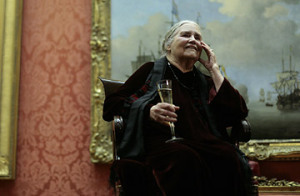 were apparently just eating lunch and idly passing time surrounded her. I was appalled. Still, I was civil to them, and even enjoyed chatting through a lovely meal I’ve now forgotten except for dessert—a kiwi-berry tart with whipped cream. As I scarfed it down, Doris took the podium. By now I’ve forgotten what she talked about—it was almost 30 years ago, and I’ve seen her twice more since. After her talk and a Q&A (during which I forced myself to remain seated and silent), a line formed and people took their books to be signed. I was fifth on line. I stood there repeating inwardly over and over, “Say nothing, Marcy, do not open your mouth.” As Doris signed my book I stood beside her and suddenly, entirely unbidden, these words fell out of my mouth: “This is the happiest day of my life.”
were apparently just eating lunch and idly passing time surrounded her. I was appalled. Still, I was civil to them, and even enjoyed chatting through a lovely meal I’ve now forgotten except for dessert—a kiwi-berry tart with whipped cream. As I scarfed it down, Doris took the podium. By now I’ve forgotten what she talked about—it was almost 30 years ago, and I’ve seen her twice more since. After her talk and a Q&A (during which I forced myself to remain seated and silent), a line formed and people took their books to be signed. I was fifth on line. I stood there repeating inwardly over and over, “Say nothing, Marcy, do not open your mouth.” As Doris signed my book I stood beside her and suddenly, entirely unbidden, these words fell out of my mouth: “This is the happiest day of my life.”
I cringed. I cringe to this day. You are no doubt cringing. Doris, however, did not cringe. She simply lifted her head, gave me a look of utter disgust and said “Oh, don’t exaggerate!” As I slunk away, tears in my eyes, I paused to turn around and saw Doris looking after me with something that seemed like regret. Knowing what I know from her writing, I like to think she regretted that we were in a situation where it was difficult to have an honest exchange. Maybe she saw the intention behind my idiotic words and regretted I hadn’t found a better way to communicate. Neither had she: we were victims of circumstance. At least, I like to think that is what she thought. For all I know she was just relieved I hadn’t tried to stab her, since I was clearly insane.
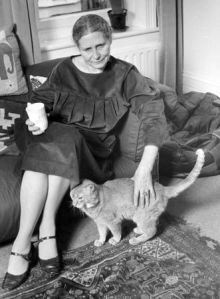 I did move to SF. It turned out that Lessing had good friends here, and, as I said, I saw her twice more. By the third time I was writing regularly for local publications, and a tiny bit more poised, so I asked her for an interview. She said “Not this time—too busy,” with no indication she recognized me (so I fervently hoped).
I did move to SF. It turned out that Lessing had good friends here, and, as I said, I saw her twice more. By the third time I was writing regularly for local publications, and a tiny bit more poised, so I asked her for an interview. She said “Not this time—too busy,” with no indication she recognized me (so I fervently hoped).
I knew she was getting on. I worried about it, knowing her death would mean no more words from her. I forgot that with 55 books I will have Doris Lessing to re-read for the rest of my life—after all, I’m no spring chicken myself. When a friend emailed me with news of her death two hours after the fact, I was only surprised for a second. Then I began reading all the obits, tweets and accolades, glad she was being thoroughly acknowledged. (I wonder if that would have happened without the Nobel.)
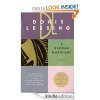 Ironically, it took me three starts many years ago before I took to Doris Lessing. It was in the early Seventies that a friend recommended A Proper Marriage, the second book in her Children of Violence bildungsroman. I couldn’t get into it. Some time later I tried again; still, no dice. The third time, however, it took; who knows why? I’m just grateful I kept trying, something I probably wouldn’t do today: once I was on Lessing’s wavelength I stayed there. It’s not a bad place to be. Thank you, Doris, for all the hours of joy and camaraderie and comfort you’ve given me. You helped get me through this life. And I’m not exaggerating.
Ironically, it took me three starts many years ago before I took to Doris Lessing. It was in the early Seventies that a friend recommended A Proper Marriage, the second book in her Children of Violence bildungsroman. I couldn’t get into it. Some time later I tried again; still, no dice. The third time, however, it took; who knows why? I’m just grateful I kept trying, something I probably wouldn’t do today: once I was on Lessing’s wavelength I stayed there. It’s not a bad place to be. Thank you, Doris, for all the hours of joy and camaraderie and comfort you’ve given me. You helped get me through this life. And I’m not exaggerating.
“Remember that the book which bores you when you are twenty or thirty will open doors for you when you are forty or fifty, and vice versa.
Don’t read a book out of its right time for you.” – Doris Lessing, from the 1971 introduction to The Golden Notebook
Related articles
RIP Doris Lessing (marcys.wordpress.com)
Doris Lessing: a woman ahead of her time (telegraph.co.uk)
In Memory of Doris Lessing (preternaturalpost.wordpress.com)
Doris Lessing died today (complexnumberblog.wordpress.com)
11 Bits of Wisdom From Doris Lessing, On Reading, Writing, and Life (huffingtonpost.com)
Tributes: Doris Lessing (wnyc.org)
‘Doris Lessing was a model for every writer coming from the back of beyond’ (theguardian.com)
The genius of Doris Lessing (blogs.spectator.co.uk)
Filed under: Current Events, Feminism, Personal, Writing Tagged: Doris Lessing, Four-Gated City, Golden Notebook, Kate Millett, Lessing, Shikasta

November 17, 2013
RIP Doris Lessing
The world’s greatest living writer died today at the age of 94. I am bereft knowing there’ll be no more words from Doris Lessing.
On winning the Nobel Prize, the Swedish Academy described Lessing as an “epicist of the female experience, who with scepticism, fire and visionary power has subjected a divided civilisation to scrutiny”. (from BBC)
At least I still have all those books of hers to re-read. Still.
I knew this day was coming. Still.
It is a sad day for literature.
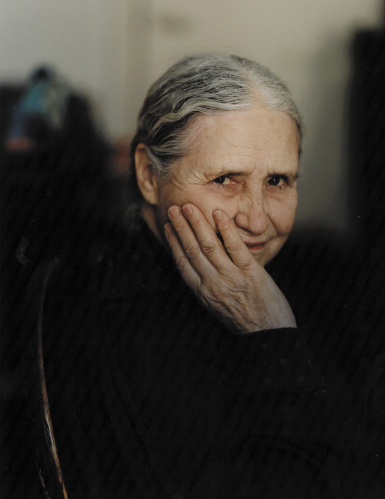
Related articles
Doris Lessing dies aged 94 (theguardian.com)
Doris Lessing, Novelist Who Won 2007 Nobel, Is Dead at 94 – New York Times (nytimes.com)
Doris Lessing, Nobel Prize-winning author dies at 94 (telegraph.co.uk)
Filed under: Current Events, Feminism, Personal, Writing Tagged: BBC, Doris Lessing, Golden Notebook, HarperCollins, London, Nobel Prize, Nobel Prize in Literature, Swedish Academy

November 14, 2013
Brian Wilson Turns Down Yankees

Logos and uniforms of the New York Yankees (Photo credit: Wikipedia)
 Brian Wilson, former closer for the SF Giants, turned down a chance to play for the New York Yankees rather than cut off his beard. This is surely a first in baseball history. My poem on this sad state of affairs is now up on Yanks in Exile.
Brian Wilson, former closer for the SF Giants, turned down a chance to play for the New York Yankees rather than cut off his beard. This is surely a first in baseball history. My poem on this sad state of affairs is now up on Yanks in Exile.
Related articles
Brian Wilson Refuses To Part With Beard, Won’t Sign With Yankees (newyork.cbslocal.com)
Report: Yankees Won’t Sign Brian Wilson Because He Refuses to Shave His Glorious Beard (nesn.com)
Brian Wilson Will Only Go Where His Beard Is Welcome (meatlockersports.com)
Filed under: Baseball, Current Events, sports, Yankees Tagged: Brian Cashman, Brian Wilson, New York Yankees, San Francisco Giants


